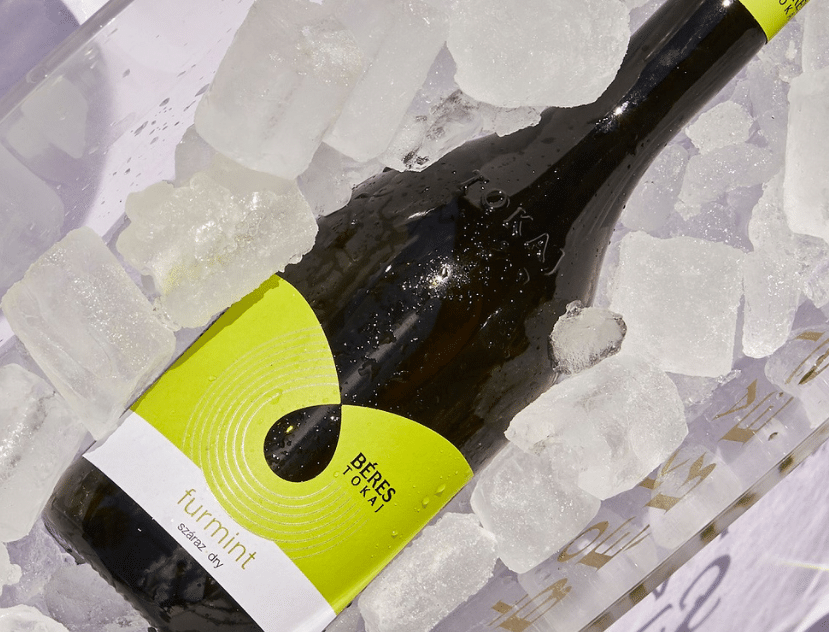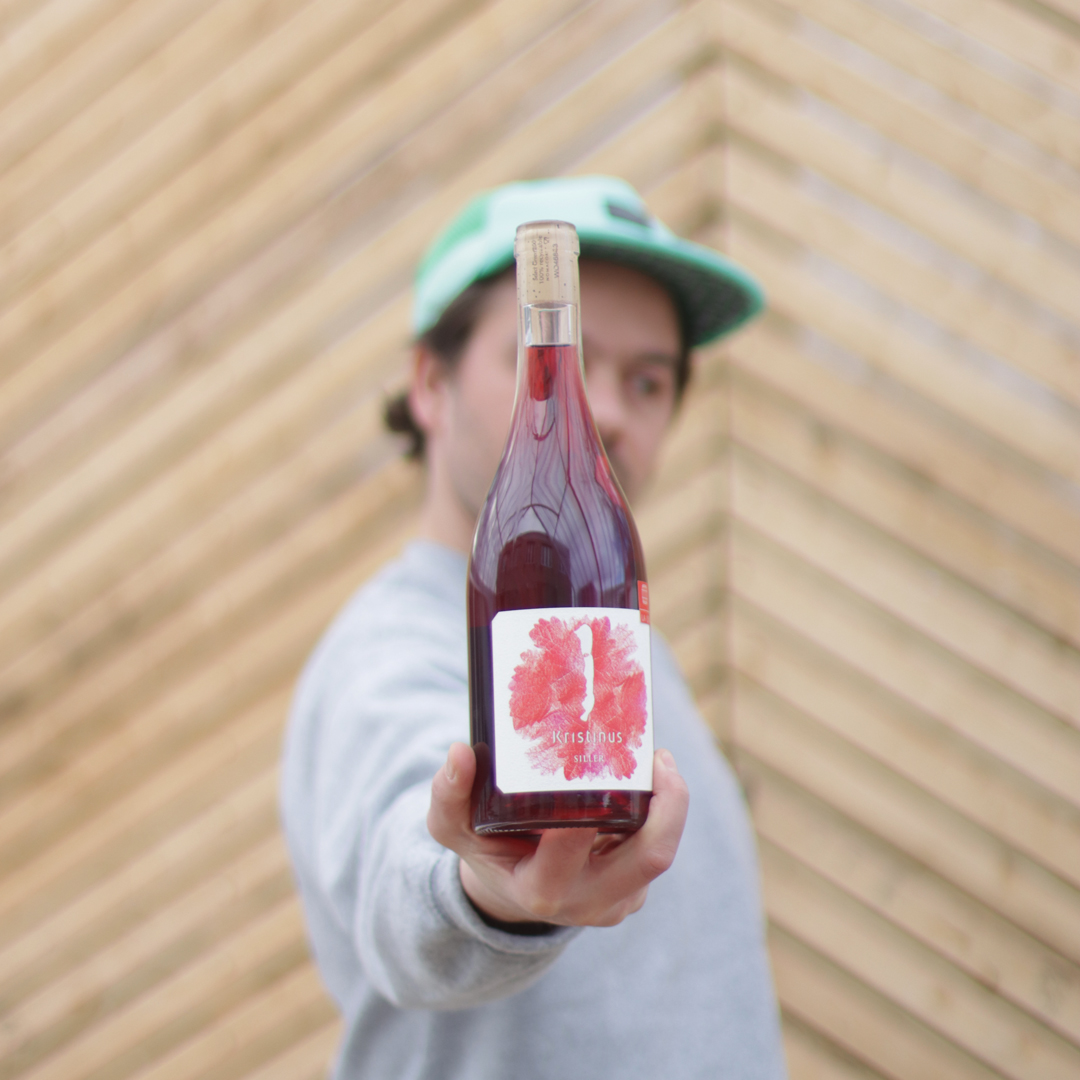No more gas masks!
Kristinus, another biodynamic wine estate
Is there any relation between „post-communist syndromes” and biodynamic grape growing? I have started to wonder recently about this, because all Hungarian biodynamic producers have come from abroad. Is it because we, Hungary-born citizens are „vaccinated” against innovation? Is it that we had been oppressed for such a long time that we forgot using our common sense? Because it is common sense, that if something saves money, saves our planet, gives us pleasure and even functions, we should use it. So does Kristinus, a wine estate on the south of Lake Balaton.
A handful of pioneers
The pioneer in Hungary was Márta Wille-Baumkauff, who is Hungarian by birth, but her husband is from Germany, and their children were educated in Germany. Márta encountered Rudolf Steiner’s philosophy of education, she liked Waldorf method, thus it was an obvious choice to adapt Steiner’s method of agriculture as well. By now her estate, Pendits Winery in Tokaj has become a reference point for organic and biodynamic wineries, an evidence of this is a recent acknowledgement: Pendits was selected Eco Winery of the Year in 2019 by Biokultúra Szövetség (Association of Eco Culture). Later Austrian Franz Weninger converted his vineyard in Balf, Sopron wine region. I was invited when the winery debuted with the first biodynamic wines, and I remember Franz’s explanation: „I cannot say I fully understand every single part of biodynamics, but it works. Maybe just because I simply spend more time in the vineyard, I don’t care since it works.” His mentor was Andrew Lorand, a renowned expert, and I was fortunate enough to have a long conversation with him. I have become convinced. It took some hours, but at the end I was absolutely convinced. Franz Weninger himself became a missionary, he organized a training in Villány, and helped a couple called Wassmann. Susann and Ralf arrived in Villány from Germany, and it was obvious for them since the beginning that they would cultivate their land in organic way. It is still a small handful of wineries, therefore the conversion of Kristinus is an important step, since among the ones listed above Kristinus is the largest scale winery. The CEO of Kristinus is called Florian Zaruba. Guess his nationality…
Dangerous craziness
„When we decided to convert our vineyards, we were warned that we might lose not only the crop of a vintage, but the entire estate. Some threatened that we would shortly go bankrupt” – said German born Florian. The estate is half way through the process, one and a half years have passed – and of course they have not gone brankrupt.
So Florian is German, but to be precise: he is almost Hungarian, since he spends 99% of his time in Hungary, his home is only a few minutes from the estate. Of course it is important for him – and his beloved dog – to breath clean air. „The most visible difference for my employees is the absence of gas masks. They used to wear masks during spraying, and the sight of gas masks is not cheerful at all. You can immediately see that something is not right if masks are to be worn.”
Teambuilding with happiness
Florian is a happy person, it is easy to tell looking at his photos and listen to him laughing. The happiness of his team is also important for him: „It gives a f(…) amazing feeling to create healthy, sustainable and individual fruits and with it wines! It is amazing to see how biodiversity is coming back and how the team is getting closer. It is changing everything including culture…”
So how did it start? „The initial idea was only to increase the quality and expressiveness of the grapes. Also getting out of the competition of mainstreamed wines and finding a sustainable way of agriculture.” However, as deeper Florian got into the topic, the more obvious it became for him to choose biodynamics. In 2018 all Kristinus wines were made without chemical pesticides and fungicides, and they have started to convert the cellar as well: Kristinus will not use any kind of synthetic products in the cellar, and they will get rid of selected yeasts as well. Demeter stamp will come only later, in a year, but as Florian says „certification is one thing, working biodynamically is another”.
It does not guarantee 100 Parker-points
For Florian, the hardest thing in the whole process is to convince others. To fight misbeliefs. It is important to understand, that working biodynamically does not guarantee 100 Parker ponts. What it guarantees, is the healthy soilthanks to the microorganisms, and a happy vineyard with butterflies, with colourful flowers, with life. Florian mentions the typical attitude: if someone tasted a biodynamic wine that he did not like, he will think that it is because of the method, and the wrong conclusion will be that he does not like biodynamic wines. The truth is that quality does not depend on the method, though in many cases the more carfeul way of work comes with the conversion, and this way yes, there is a relation between the two. Kristinus also expects the increase of quality: „Our approach has changed and we get closer and closer to make wines with character”.
A learning process
Florian admits that it is a long learning process, and a lot of hard work is yet to be done. His idol is „the pope of biodynamics”, Nicholas Joly, and of course he has visited several estates like Alois Lageder, dr. Bürklin Wolf or Gut Oggau. He consulted with Demeter Germany, Demeter International, Demeter Hungary, Biocont Austria, Biocont Hungary and countless winemaker friends in different countries. I have heard about a winemaker, who gave it up because of his belief: his Christian belief was conflicted with biodynamic practices. Indeed, some of them sound rather obscure, and burning horns in the ground sounds actually woodoo, but if you understand the effect of the microorganisms buried in the ground, you will accept it. Biodynamic grape growers did not cure diseases, they prevent them by strengthening the immune system of the plants and the vineyard. Following the Moon calendar is again something strange at first sight, but at the end it is absolutely logical: „We started to work according to the lunar phases as well. It’s proved in many ways that the Moon has a big impact, especially on water and water is one of the elements which is life-giving for plants!” – says Florian. If you visit him, he will tell you much more, because he spent so much time on learning that he might be able to write a book!
Ágnes Németh
Hungarianwines.eu






